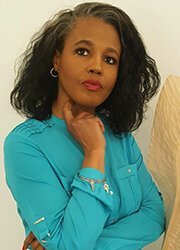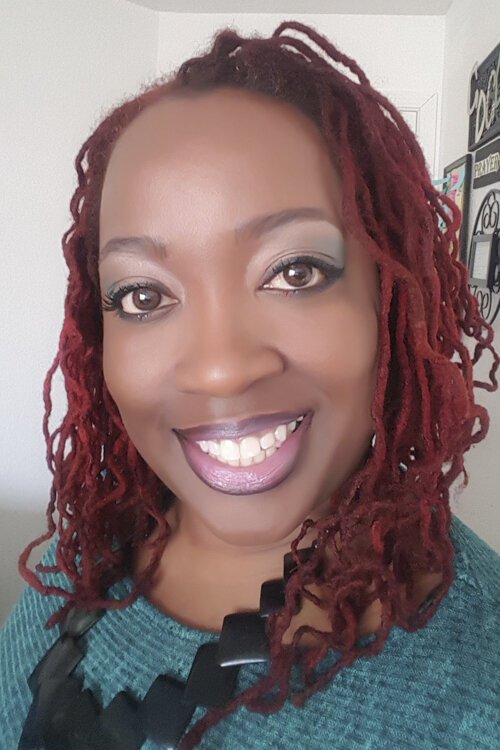First Year Cleveland’s OWN works to improve maternal and infant health outcomes
For more than 50 years Cuyahoga County has had one of the highest rates of infant deaths in the country, with even higher numbers for African American babies.
While several programs exist to curb this problem, one organization continues to take its work to the next level.
First Year Cleveland, a community movement dedicated to reversing this trend of infant deaths and helping all babies celebrate their first birthdays, in 2018 established the Pregnancy and Infant Loss Initiative (PAIL) committee to engage and support African Americans who have experienced infant loss.
The 40-member committee consists of African Americans who have experienced loss, community leaders, government agencies, health care providers, mental health professionals, faith-based institutions, and nonprofit organizations—all working together to provide hope through healing support groups, infant loss remembrance events, and education and wellness events.
“We define loss as miscarriage, still birth or infant death under age one,” says Tracy L. Carter, PAIL co-chair and a parent who experienced a miscarriage. “We were charged to partner with African American parents to understand their experiences so we could shape programs, services, and policies that better support them during their grief and pain.
*On Thursday, June 18, 2020 PAIL took its services one step further as they launched Our Wellness Network (OWN)—a group of African American mental health professionals and peer support specialists who provide members of the Black community with the support they need to manage their loss and any other circumstances involving depression, anxiety, and stress.
The mission is to improve maternal and infant health outcomes.
*“With OWN, we’re making sure these Black families have access to mental and emotional health and wellness so they could deal with the trauma and, again, the significant pain that comes with a loss,” says Carter.
“Every parent you talk to, they all have a different story,” Carter continues. “But, I knew from my own personal experience that there was one process, one approach that was effective in helping me deal with the pain and coming up with how to deal with it in a more healthy way.”
Carter learned through her church of an approach to loss—known as the grief recovery method—that brings an entire support team together to help parents grappling with the pain of a loss.
“We asked, what would it look like if we had more Black parents who experienced loss, therapists who support them, Black clergy, and others, all trained in this method so they could be a little more effective in helping black people on their emotional wellness journey,” explains Carter of OWN’s origins.
The PAIL committee discovered this need as their participants, who did receive mental health services, found it to be either inaccessible from a geographical perspective or culturally disconnected.
“The parents had huge input in this sacred work,” says Carter. “We did a lot of listening and learning, trying to be responsive. [OWN] was built by African Americans to support African Americans in their mental and emotional journey. Our approach helps African Americans to open up, to be honest and transparent.”
OWN’s services are provided one-on-one or in group settings. Participants also have access to mental health professionals in private practice.
The OWN network is open to all but, because of the need in Cleveland and Cuyahoga County, the group targets African Americans, Carter explains.
Samantha Pierce and her husband were among the first to go through the OWN training process.
Eleven years ago, the couple suffered the loss of twins. Celebrating their first wedding anniversary at the time, they went home and “tried to pick up the pieces” but struggled with finding ways to cope.
“I had a friend whose baby had died,” recalls Pierce. “She was the only person I would talk to.”
That friend and her husband convinced the Pierces to get some counseling. “I don’t think we would have sought it out otherwise,” Pierce says, adding that there weren't a lot of options back in 2009.
Once in counseling, the Pierces found there were not a lot of Blacks in their group and none of the counselors were Black.
“Any level of counseling after loss is going to help,” she says. “It worked. It was all I had at the time.”
Pierce did get pregnant again, with another set of twins (now 9 years old). This time, she refused to allow her executive-level job to stress her out and ended up getting fired.
But, that job loss led her becoming a peer support specialist through the March of Dimes.
“Sam has been helping many families along the way and just didn’t know it,” says Carter of Pierce. “And we’ve been watching her. Because she is more visible with the movement, more active, we wanted to make sure she had the tool to help her own healing, her family and household healing. And, when people approach her, saying ‘I need help,’ she’ll be ready.”
Pierce and her husband recently completed eight weeks of the grief recovery method.
“It was like nothing I ever experienced, and I’ve gone through four groups,” says Pierce in the training. “By the time we got through [it] I had unpacked not only the child loss, but so many other things. It was different. I wasn’t expecting it.”
Piece says she feels a sense of healing she hadn’t had before the training. In March of this year, she completed a four-day intensive training to become a certified grief recovery specialist.
“As Black women, we are master disguisers,” says Danyell Goggans, OWN’s lead therapist, explaining why this method was selected over others. With this approach, she says, they discuss how Black women function, address the “mad Black woman” label, microaggressions, and other struggles.
“These are things you wouldn’t understand otherwise, unless it’s your existence,” explains Goggans. She says OWN creates a “safe space”—a no-judgement zone—where each person, every member of a family, gets a moment to share their narratives.
“I want to see more of our community utilize mental health services,” says Goggans. “Now, were able to have an impact on so many who didn’t think they had access.
With such a diverse, dynamic group of parents and professionals from Sabrina Roberts, administrator for health policy and programs for Cuyahoga County’s Department of Health and Human Services to Akron Bishop Joey Johnson, (a certified grief recovery specialist himself and mentor to OWN), Carter, Pierce, and Goggans are excited about the work that has been put into OWN and what’s to come.
“It was an amazing experience,” says Pierce. “As a parent, it was everything I could dream of. For participants, I’m looking at someone thinking, she has no idea how good this is going to be for her, how much better she’s going to be.”
“The Black family is jeopardized if this doesn’t get addressed,” adds Goggans, “because every time a couple loses a child, they are at increased risk for breaking up.”
Goggans says OWN is the answer to lowering that risk. “When that couple breaks up, that family breaks up— and when that family breaks up, those statistics skyrocket for our children and our families,” Goggans explains.
“So, the work we do is far more than saving one child. It is saving generations.”

.jpg)
